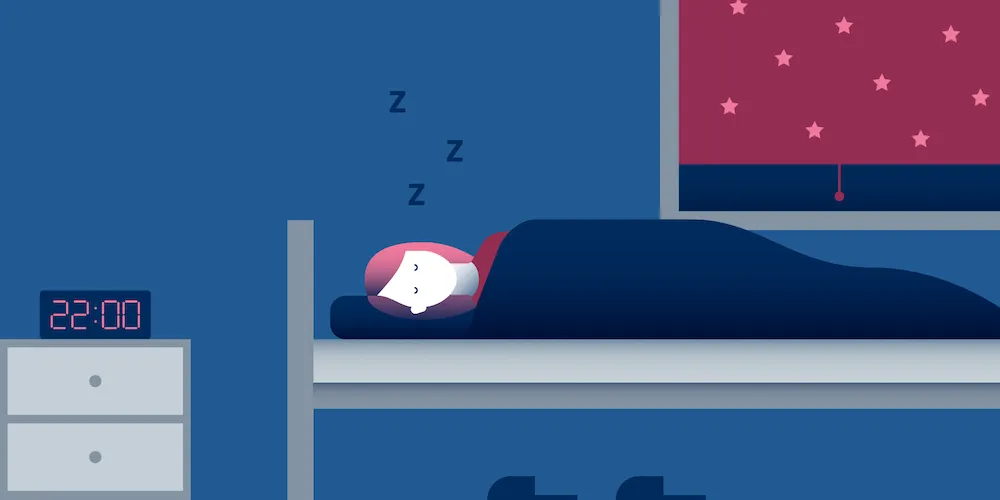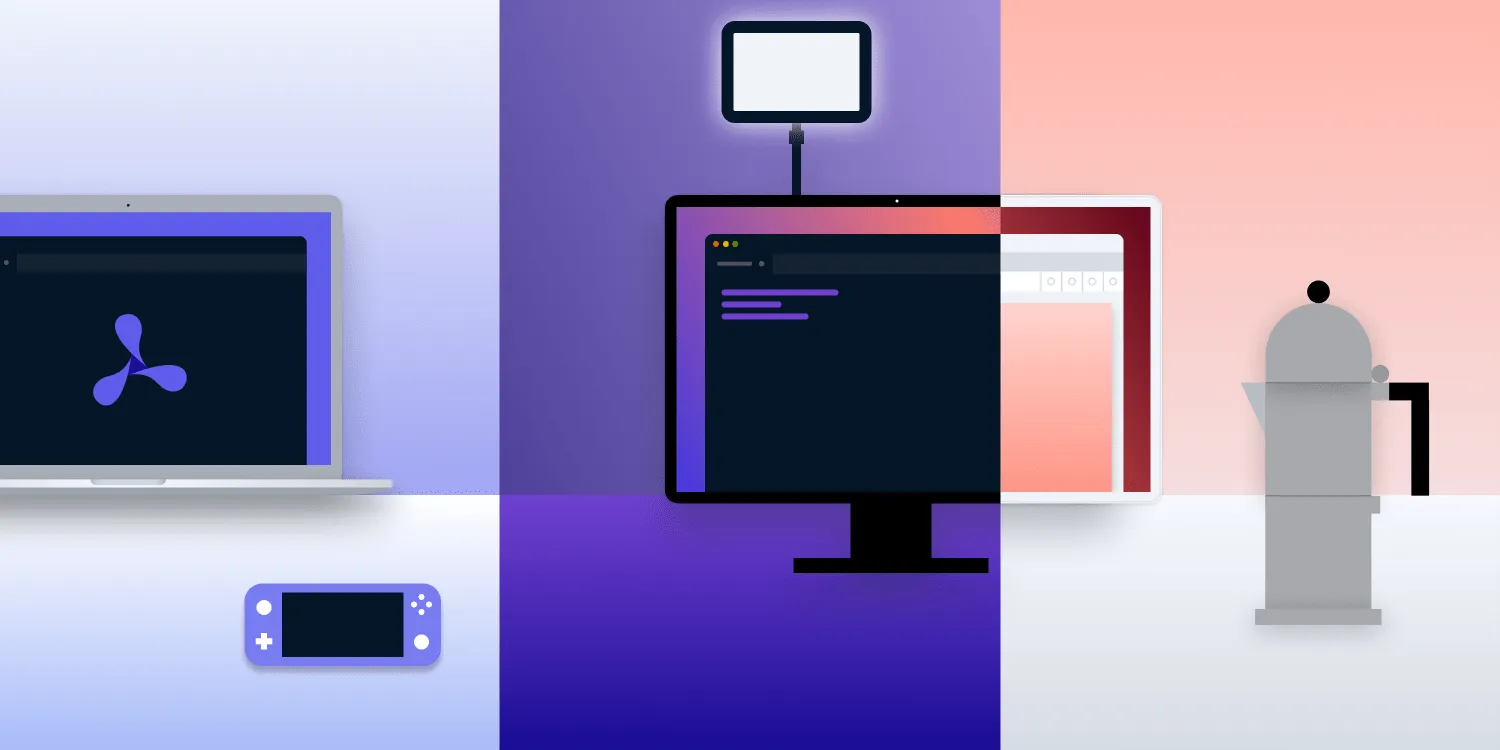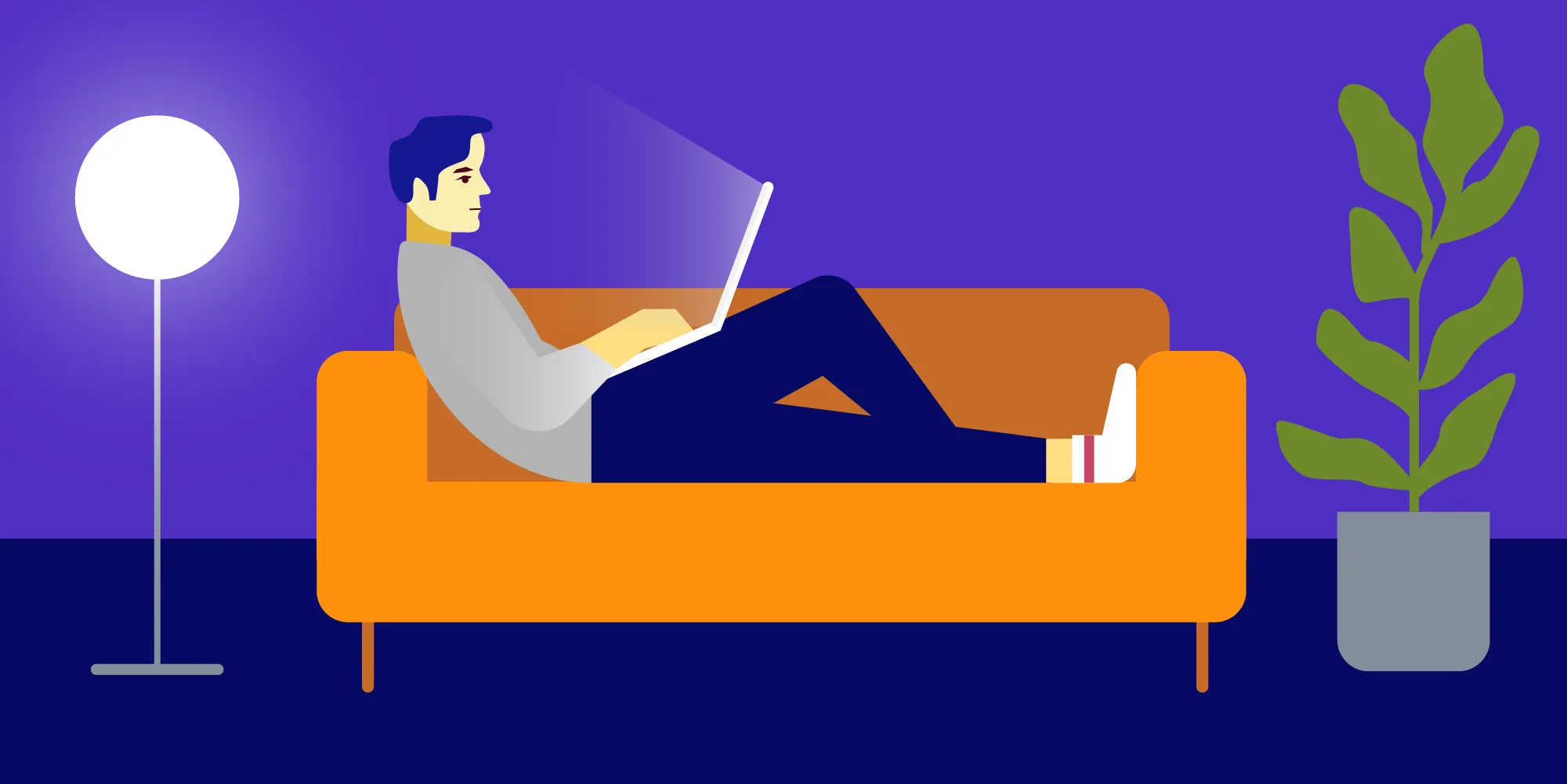Eight Hours: Sleep
Table of contents

We all need sleep — some of us more than others(opens in a new tab). Sadly, sleeping is grossly overlooked when searching for solutions to health issues(opens in a new tab), lack of energy, and general tiredness in the afternoons. Sleep deprivation has been shown to be a cause of drowsiness and irritability, along with other health issues(opens in a new tab) such as reduced immune functionality, diabetes, and high blood pressure. The list could go on, but what we’re interested in for this blog post is the impaired brain functionality(opens in a new tab) causing a lack of concentration and brain fog. This is definitely not something you want to fight with in your day-to-day job.
What Is Enough?
According to the National Institutes of Health, adults are getting an average of just under seven hours of sleep(opens in a new tab) a night. Some may be surprised at this relatively high number, but considering that most of us should be aiming for between seven and nine hours a night(opens in a new tab), we are not hitting the advised targets. That one-hour discrepancy(opens in a new tab) can have a drastic effect, causing some slight delay in brain cohesion. Even back when Robert Owen(opens in a new tab) was fighting for the eight-hour work day, it was understood that eight hours of sleep was important. But although we’ve implemented the eight-hour work day, we have yet to tackle the eight hours of sleep correctly.
Some may say the answer is to sleep in longer on the weekends to make up for lost sleep time during the week. However, this will only partially make up for the effects of lost sleep and could even make matters worse(opens in a new tab) by shifting sleep patterns.
Are You Getting Good Sleep?
When we sleep, there are actually a few different stages we go through. Here are two which are important when looking at work-related issues.
REM Sleep
Rapid eye movement (REM)(opens in a new tab) sleep is a period of time between light sleep and deep sleep. When your body is in REM sleep, most of your vital functions are not in a resting state. For example, your blood pressure and temperature are higher and your heart rate does not slow down like you would expect. This is because this type of sleep is not a restorative sleep. It does, however, serve an important function. During this time, your brain is on overdrive trying to process thoughts and memories, and this may be one reason why you can quickly solve a problem in the morning when you’d been struggling all afternoon the day before. As a result, having enough REM sleep is very important for the creative and productive mind.
Deep Sleep
Deep sleep(opens in a new tab) is what most of us would define as good sleep, and for good reason. This is the time when the body switches into a reduced functionality and begins the process of rejuvenating. Blood flow to the brain decreases and redirects to other parts of the body, and it also carries different hormones to increase activity in the immune system. As such, it’s important to get enough deep sleep to remain healthy and active(opens in a new tab). It has been noted that as we become older, we have an impaired ability to fall into deep sleep(opens in a new tab), which could explain why the elderly population is slower to bounce back from illness.
How to Promote Enough Good Sleep
Now that we know that we need more REM and deep sleep, let’s discuss the ways we can attain it.
Get on a Schedule and Stick to It
It’s important to have a sleep schedule(opens in a new tab). This will train your body to release hormones at the correct time to make you sleepy. Miss this window and you may be stuck staring at the ceiling. It has also been noted that between 10pm and 2am is the ideal time to gain the best regenerative sleep.
Go Outside in Direct Sunlight
Part of informing your body that you have a schedule is to get out into the sunlight. This will help set your circadian rhythm(opens in a new tab).
Exercise in the Morning
In addition to the added health benefits of exercising, getting moving also gives you a hit of endorphins in the morning, which will wake you up. Meanwhile, exercising helps contribute to good sleep. It has been shown that 83 percent of vigorous exercisers(opens in a new tab) experience very good or good sleep quality.
Minimize Blue Light and Screens
Blue light can confuse your brain and change your circadian rhythm(opens in a new tab). Therefore, it’s important to get away from the computer and phone screen before bed. Better yet, place the devices in a completely different room so they do not disturb you at night. Although abstinence is the best option, there are also tools like Night Shift(opens in a new tab) on iOS and Mac or the Night Mode(opens in a new tab) feature on Android, both of which reduce the amount of blue light emitted from device screens.
Reduce Noise
Obviously noise can wake you up at night. But even when you don’t notice it, noises can not only stop you from falling into deep sleep, but they also can cause a bad night’s sleep. Common culprits are phone notifications coming through, the air conditioning or heating system clicking on and off, and noisy traffic from outside. If possible, these noises should be addressed. Earplugs can be an alternative when a resolution to the noise is not possible.
Get the Right Temperature
It’s best to have your sleep environment slightly cooler at night(opens in a new tab). For example, 60 to 67 degrees Fahrenheit (16 to 19 degrees Celsius) is a recommended range. If not, the temperature can disrupt your sleep in very much the same way as noise.
Limit Caffeine and Alcohol Intake
Caffeine is a stimulant, so it should not be used too soon before you go to bed. Everybody is different, so it’s important to determine how late you can still drink caffeine and not be affected. Additionally, alcohol can have an effect on your circadian rhythm(opens in a new tab) by altering the timing in which hormones are released. Therefore, it’s best to limit drinking to the early evening(opens in a new tab) and to only enjoy alcoholic beverages two to three times a week to avoid sleep issues.
Reduce Food and Liquid Intake
Eating food before bed will impair your body’s ability to enter into a good sleep due to the digestion process. Additionally, drinking too much liquid before bed will make you run to bathroom throughout the night, causing interruptions in your sleep cycle.
Stop Hitting That Snooze Button
Using the snooze functionality can be detrimental to your sleep(opens in a new tab). If you fall asleep after your alarm first sounds, your body will slip back into a resting state, only to be abruptly woken up again a few minutes later. This confuses the body and brain, which can lead to sleep inertia(opens in a new tab) that can persist for up to four hours.
Use Tools to Fall Asleep
Sometimes the problem can be the act of falling asleep(opens in a new tab) itself. Luckily, there are tools out there to help with this. Meditation or even breathing exercises(opens in a new tab) can help put you into a calmer and less anxious state, thereby helping you fall asleep. Additionally, phone applications(opens in a new tab) offering things like guided meditation or soothing noises are available to help with the act of falling asleep.
Conclusion
If you want to be productive during your work day, it’s important to get good sleep. If you don’t, then you will not be performing at 100 percent, making it more difficult to get through your work day and accomplish your goals. This fact, along with other great health benefits of sleeping eight hours, should be enough to promote sleeping to the top of your priority list!
Interested in how other parts of your life can affect your work? Check out the rest of the series.







